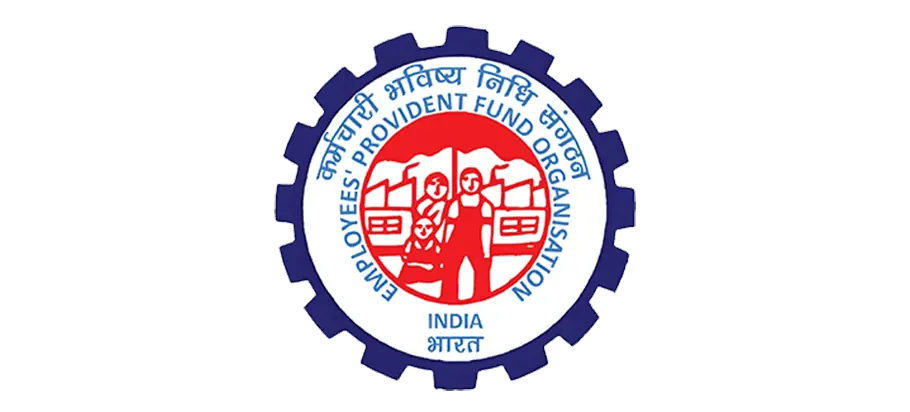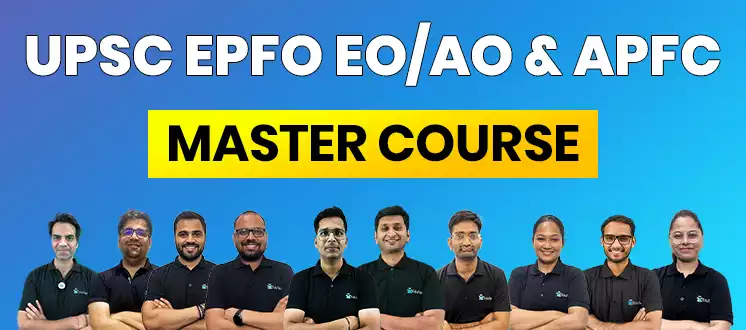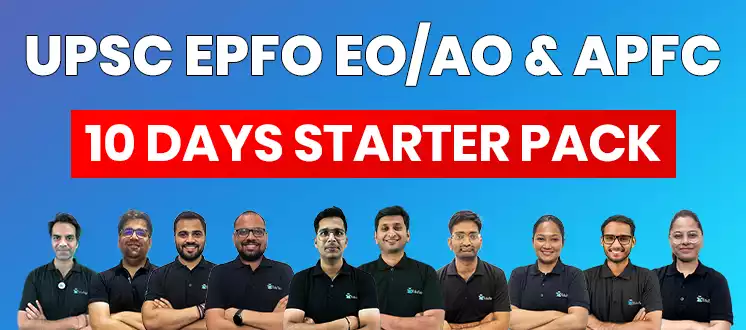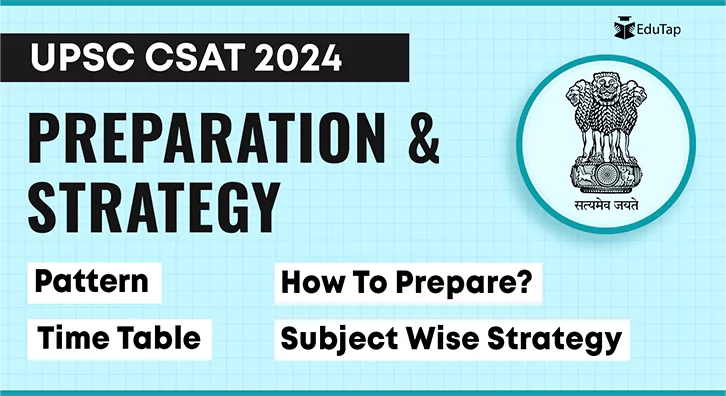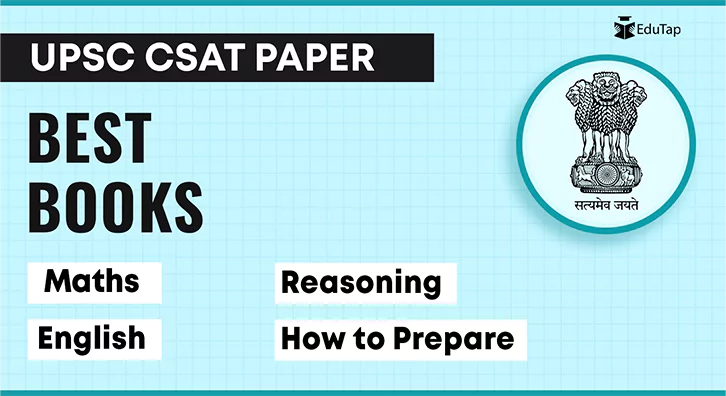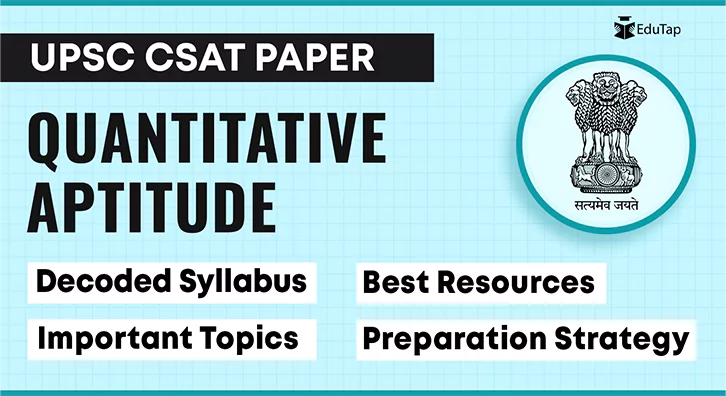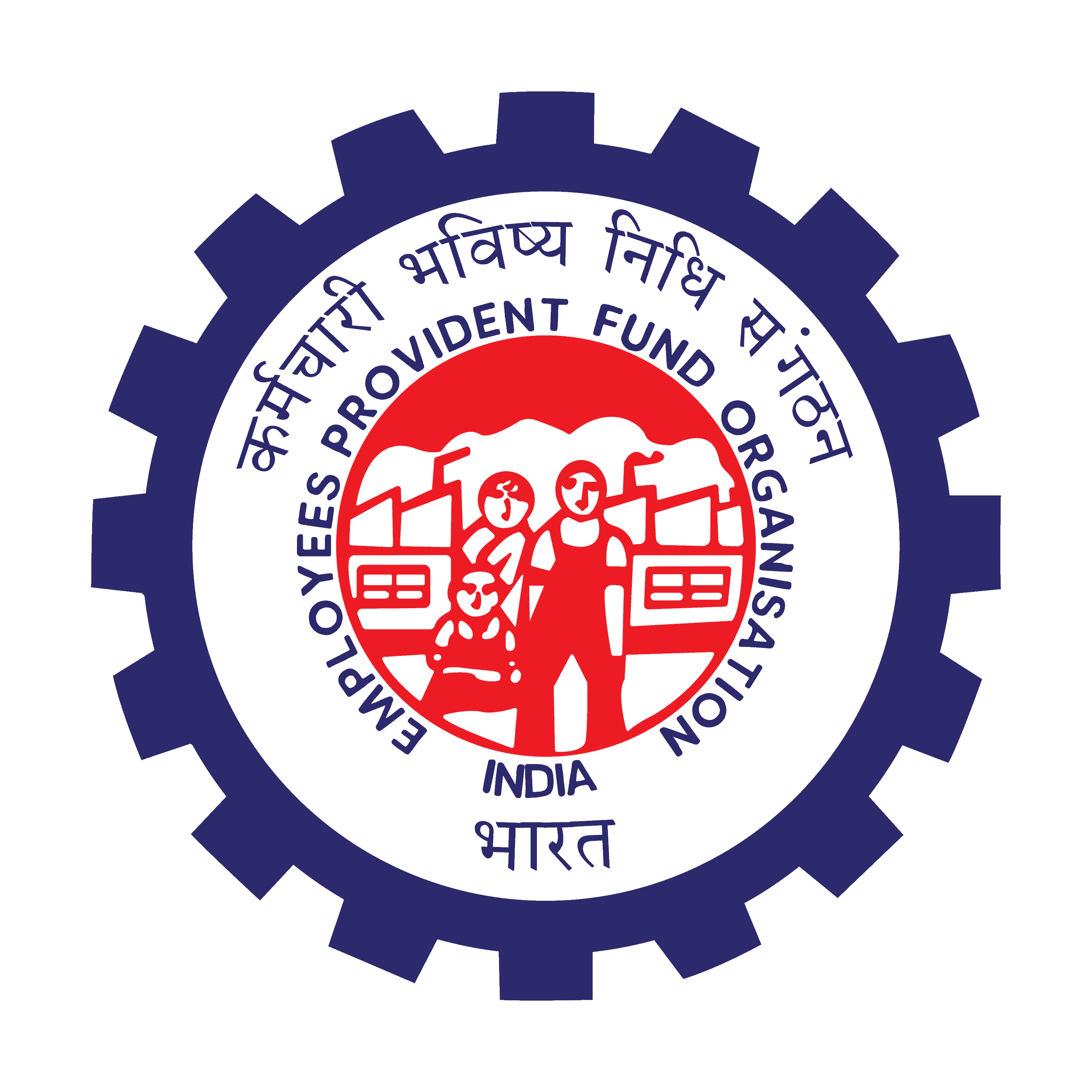Enforcement/accounts officer is a highly respectable position that offers an excellent salary, allowances, and various other perks. These benefits are one of the motivating factors for aspirants to become EO/AO officers and secure their future. The job profile of an EO/AO depends on the department in which they are posted. Once you are appointed as EO/AO, you will have to carry out the following roles and responsibilities.
- Inquiries of account and settlement of claims.
- To enforce orders of the provisions and schemes under the Employees’ Provident Funds and Miscellaneous Provisions Act, 1952.
- Educate about the prescribed forms
- Attend prosecution cases.
- Conduct surveys.
- Address employee grievances.
- Maintain cash book, bank statement verification, MIS returns etc.
- Issue warrants on the defaulting employer.
Understanding the eligibility criteria before applying for the EO/AO exam is important as it ensures a seamless application process and prevents unintentional disqualification. Without a clear understanding of these criteria, you may unknowingly overlook certain requirements, leading to disqualification from the selection process. This could result in losing a valuable opportunity and hinder your dream of joining EPFO as an EO/AO.
EO/AO eligibility criteria include two major categories:
Age Limit
- Maximum is 30 years*
(Minimum age limit is not mentioned in the notification)
1.1. Age Relaxation
Here are some age relaxations for some specific categories.
| EO/AO: Age Limit Relaxation | |||
| SNo. | Category | Age Relaxation | Upper Age Limit |
| 1 | General | None | 30 |
| 2 | Other Backward Castes (OBC) | 3 Years | 33 |
| 3 | SC/ST | 5 Years | 35 |
| 4 | Ex-Servicemen (including Military Services) | 5 Years | 35 |
| 5 | Central Govt. Employees | 5 Years | 35 |
| 6 | Employes of EPFO | 5 Years | 35 |
| 7 | PwD (General/EWS) | 10 Years | 40 |
| 8 | PwD (OBC) | 13 Years | 43 |
| 9 | PwD (SC/ST) | 15 Years | 45 |
Educational Qualification
Bachelor’s Degree in any subject from recognised university or institute.
Important Note: The qualifications are relaxable at the discretion of the Union Public Service Commission, for reasons to be recorded in writing, in the case of candidates otherwise well qualified.
Industrial Relations and Labour Laws
Here is the detailed Industrial Relations and Labour Laws syllabus:
Industrial Relations
- Overview of industrial relations
- Indian labour force
- Trade union
- Collective bargaining
- Industrial discipline and grievance procedure
- Industrial conflicts and disputes
- Settlement of industrial disputes
- Labour welfare
- Wages
- Workers participation management
- International industrial relations
- Industrial health & safety
- Miscellaneous
Labour Laws
- Payment of wages act, 1936
- Minimum wages act, 1948
- Industrial employment (standing orders) act, 1946
- Trade unions act, 1926
- Factories act, 1948
- Industrial disputes act, 1947
Social Security
Here is the detailed Social Security syllabus:
Social Security Schemes
- Types of retirement schemes
- National pension systemA thorough understanding of the syllabus significantly impacts your preparation strategy and success in the examination. It provides insights into the specific subjects and topics that will be evaluated.
According to the official notification, the syllabus of the UPSC EPFO EO/AO exam broadly comprises the following topics:
- General English
- Indian Freedom Struggle
- Current Events and Developmental Issues
- Indian Polity & Economy
- General Accounting Principles
- Industrial Relations & Labour Laws
- General Science & Knowledge of Computer Applications
- General Mental Ability & Quantitative Aptitude
- Social Security in India
The syllabus in the official UPSC notification is indicative. Therefore, we analyzed previous years’ question papers to identify the detailed syllabus for the UPSC EPFO EO/AO exam.
Below is the detailed syllabus of the EPFO EO/AO exam:
General English
Here is the detailed general English syllabus:
|
|
General Science
Here is the detailed general science syllabus:
Physics
- Units and Measurements
- Kinematics including distance, displacement, speed, velocity and acceleration
- Dynamics and Newton’s laws of motion
- Electricity
- Pressure and its applications
- Light – Phenomenon like Refraction, Reflection, Total Internal Reflection, Dispersion, Diffraction and Interference
- Uniform Circular Motion and Simple Harmonic Motion
Chemistry
- Physical and Chemical changes
- Elements, Compounds and Mixtures
- Atoms and Molecules
- Chemistry in daily life
- Energy – Renewable and Non-Renewable
- Metals and Non-metals
- Acids and Bases
Biology
- Food Components
- Health and Diseases
- Cells and Tissues
- Organ systems – Digestive system, Skeletal system, Muscular system, Respiratory system, Circulatory system and Reproductive System
Current Events
Here is the detailed syllabus of Current Events:
- Government schemes
- Reports of National and International Organizations
- First in News
- Defence Exercises
- Environment
- Sports
- Awards and Milestones
- Days in News
- Persons in News
- Appointments
- Fairs and Festivals
- Places in News
- Books and Authors
- Miscellaneous
Indian Culture, Heritage and Freedom Movement
Here is the detailed syllabus of Indian Culture, Heritage and Freedom Movement:
Decline of Mughal Empire and Rise of Regional Powers
- Reasons for Disintegration of Mughal Empire
- Later Mughals after Aurangzeb
- Emergence of Regional Powers
- Weakness of Regional Politics
Advent of Europeans
- Advent of Portuguese in India
- Dutch in India
- Advent of English in India
- Advent of Danes in India
- Advent of French in India
Rise of British in India
- Anglo French Struggle for Supremacy
- British Conquest of Bengal
- British conquest of Mysore and Maratha Empire
- British conquest of Sindh, Punjab and Awadh
- British annexation beyond Indian frontiers
- Reorganization of British Political system
- Police Administration
- Revenue Administration
- Significant policies of British to consolidate
Early Reforms During British Rule
- Administrative reforms under British rule
- Aspects of British Administration in India
- Civil Services
- Police System
- Judicial System
- The Army
- Development in Press
- Development in Communication and Education
- Development of Railways
Revolt of 1857
- Causes of Revolt of 1857
- Beginning and Spread of Revolt
- Suppression of Revolt
- Cause for the failure of Revolt
- Nature of Revolt
- Consequences of 1857 Revolt
Rise of Nationalism & Formation of INC
- Reasons for Rise of Indian Nationalism
- Political Associations before Indian National Congress
- Highlights of Pre – Congress Political work
- Foundation of Indian National Congress
- Early Nationalists – the Moderate Era
- Contributions of Moderate Nationalists
- Powers and Functions of Parliament
- Prominent Moderate Leaders
- Indian Council Act of 1892
Swadeshi Movement and Rise of Extremisim
- Understanding Extremists
- Swadeshi Movement
- Morley Minto Reforms
Important Events from 1908 – 1918
- First phase of Revolutionary Activities
- Delhi Durbars
- First World War and Nationalist Movement
- Entry of Mahatma Gandhi in Indian Freedom Struggle
- Important Congress Sessions between 1908 – 1918
Important Events from 1919 – 1929
- Post War Economic Hardships
- Government of India Act, 1919
- Rowlatt Act 1919
- Non-Cooperation and Khilafat Movement
- Swarajist and 2nd Phase of Revolutionary Interview
- Growth of left movement in India
- 2nd Phase of Revolutionary Struggle
- Simon Commission and Nehru report
Important Events from 1929 to 1939
- Civil Disobedience Movement – First phase
- Karachi Congress Session
- Round Table Conferences
- Second Phase of Civil Disobedience Movement
- Communal Award and Poona Pact, 1932
- Government of India Act of 1935
- Aftermath of Civil Disobedience Movement
- Provincial Elections of 1937
Important Events from 1940 to 1947
- Wardha Resolution
- August Offer and Individual Satyagraha
- Cripps Mission
- Quit India Movement
- Constitutional deadlocks after Quit India Movement
- Indian National Army and RIN mutiny
- Run up to Independence
Socio – Religious Reform Movements
- Backdrop of Indian Renaissance
- Important Reform Movements and their leaders – Eastern India
- Important Reform Movements and their leaders – Western India
- Important Reform Movements and their leaders – North India
- Other Important Movement and their leaders
- Reform Movements of other Religions
Miscellaneous Topics of Modern History
- Anti – Colonial Rebellions in India
- Tribal Uprisings
- Politico – Religious Uprisings
- Major Peasant Movements
Miscellaneous Topics of Ancient and Medieval History
- Indus Valley Civilization
- Vedic Age
- Rise of Mahajanpadas
- Mauryan Dynasty
- Post Mauryan
- Gupta Age
- Harsha Empire
- Delhi Sultanate
- Mughal Rule in India
Governance and Constitution of India
Here is the detailed syllabus of Governance and Constitution of India:
Constitutional Framework of India
- Historical Background of Indian Constitution
- Making of Indian Constitution
- Features of Indian Constitution
- Preamble of Indian Constitution
- Amendment of Indian Constitution
- Basic Structure Theory of Indian Constitution
Indian Union and Its Citizens
- Making of Indian Union Indian Citizenship
Rights and Duties of Indian Citizens
- Fundamental Rights
- Directive Principles of State Policy
- Fundamental Duties
Centre State Relations
- Legislative Relations
- Administrative Relations
- Financial Relations
- Committees/Commissions for Centre State Relations
- Interstate Relations – Interstate Councils, Zonal Councils etc.
- Emergency Provisions in India
Executives in India
- Union Executive
- President of India
- Vice President of India
- Prime Minister of India
- Council of Ministers at Centre
- Cabinet Committees
- State Executive
- Governor
- Chief Minister
- Council of Ministers at State
Legislatures in India
- Parliament of India
- Composition of Parliament of India
- Presiding Officers of the Parliament
- Proceedings of Parliament
- Legislative Procedure in Parliament
- Annual Financial Statement – Budget
- Powers and Functions of Parliament
- Parliamentary Privileges
- Committees of the Parliament
- State Legislature
- Composition of State Legislature
- Eligibility of a Member of State Legislature
- Presiding Officers of the State Legislature
- Proceedings of State Legislature
- Legislative Proceedings in the State Legislature
- Election System in India
Judiciary in India
- Supreme Court of India
- High Courts in India
- Subordinate Courts
- National Legal Service Authority
- Tribunals in India
Constitutional and Non – Constitutional Bodies in India
- Major Constitutional Bodies
- Major Non – Constitutional Bodies
- Quasi – Judicial Bodies
- Pressure Groups
- Regulatory Bodies
Local Governments in India
- Panchayati Raj Institutions
- Municipalities
Miscellaneous Topics
- Union Territories
- Scheduled and Tribal Areas
- Special Provisions for Some State
- Comparison of Indian Constitution with other Countries
Present Trends in Indian Economy
Here is the detailed syllabus of Present Trends in Indian Economy:
Introduction to Demand and Supply
- Microeconomics V Macroeconomics
- Basics of Demand
- Basics of Supply
- Equilibrium
Elasticity of Demand
- Concept and Factors Affecting Demand
- Shift in Demand Curve
- Price Elasticity of Demand
- Cross Elasticity of Demand
- Income Elasticity of Demand
Measurement of Growth
- Basics of Economy
- Circular Flow of Income
- Gross Domestic Product
- Important Macroeconomic Identities
- Growth, Welfare and Development
- Market Structures
Poverty Alleviation and Employment Generation in India
- Poverty
- Poverty and its Types
- Measurement of Poverty
- Poverty Related Sustainable Development Goals
- Employment in India
-
- Employment Generation in India
- Types of Unemployment in India
- Measurement of Unemployment
- Status of Employment in India
Economic History of India
- Indian Economy: A Brief Overview
- Various Sectors of the Economy
- Features of the Indian Economy
- Concerns Facing the Indian Economy
- Underdevelopment
- Meaning and Types of Economic Planning
- Economic Planning in India Before and After Independence
- Economic Reforms in India
- NITI Aayog
Monetary Policy
- Basics of Monetary Policy
- Monetary Policy in India
- Instruments of Monetary Policy
- Types of Monetary Policy
- Financial Institutions in India
Inflation
- Meaning and its Causes
- Effects of Inflation
- Important Terms associated with Inflation
- Measures to Control Inflation
- Measuring Inflation
- Inflation Targeting in India
- Trends of Inflation in India
Fiscal Policy
- Basics of Budget
- Basics of Fiscal Policy
- Components of Budget
- Measures of Government Deficit
- Public Debt in India
- Goods and Services Tax
Regional Economic Cooperation
- Regional Economic Integration
- South Asian Association for Regional Cooperation
- Association of Southeast Asian Nations
- Bay of Bengal Initiative for MultiSectoral Technical and Economic Cooperation
- Bangladesh, China, India and Myanmar
- Comprehensive and Progressive Agreement for Trans-Pacific Partnership
- Regional Comprehensive Economic Partnership
- One Belt, One Road and Maritime Silk Route
- Shanghai Cooperation Organization
- Indian Ocean Rim Association
- Indian Ocean Commission
- Asia Pacific Economic Cooperation
- BRICS
- India’s Experience with Free Trade Agreements
International Economic Institutions
- Introduction
- The World Bank
- The International Monetary Fund
- World Trade Organisation
Opening UP of the Indian Economy, Balance of Payment
- Balance of Payment
- Exchange Rate
- Types of Currencies
- Exchange Rate Management in India
Industrial and Labour Policy
- Introduction
- Evolution of India’s Industrial Policy
- Disinvestment
- Micro, Small and Medium
- Enterprises in India
- Special Economic Zones
- National Investment and
- Manufacturing Zones
- National Manufacturing Policy
- Industrial Corridors
- Indices/Surveys to Measure Industrial Performance in India
- Labour Policy
Finance Commission
- Appointment
- Composition of Finance Commission
- Roles & Responsibilities
- Procedures and Functioning
- 14th Finance Commission
- 15th Finance Commission
Accountancy
Here is the detailed Accountancy syllabus:
Introduction to the Accounting
- Meaning of an economic event
- Branches of Accounting
- Understanding the process of accounting
- Objective of Accounting
Theory Base of Accounting
- Accounting principles and conventions
- Accounting terminology
Recording of Transactions
- Business Transactions and Source Document
- Accounting Equation
- Accounting books – Journal, Ledger, cash book and other accounting books
- Rules of Debit and Credit
- Types of Accounts
- Logic of recording of transactions
- Trial Balance
- Concept, importance, and role of Trial balance
- Types of accounting errors
- Formation of Trial balance
- Suspense Account
Bills of Exchange
- Concept and introduction
- Parties of Bill of Exchange
- Modus operandi of Bills of Exchange
- Promissory note
- Discounting of Bills – Process
- Rebate of Bill of Exchange
Accounting Standards
- Accounting for share capital
- Accounting for inventory and investment
- Accounting for bonus shares and buyback of shares
Preparation of the Final Accounts
- Understanding of Trading account, Profit and loss account and balance sheet
Ratio Analysis
- Concept and type of ratios.
Industrial Relations and Labour Laws
Here is the detailed Industrial Relations and Labour Laws syllabus:
Industrial Relations
- Overview of industrial relations
- Indian labour force
- Trade union
- Collective bargaining
- Industrial discipline and grievance procedure
- Industrial conflicts and disputes
- Settlement of industrial disputes
- Labour welfare
- Wages
- Workers participation management
- International industrial relations
- Industrial health & safety
- Miscellaneous
Labour Laws
- Payment of wages act, 1936
- Minimum wages act, 1948
- Industrial employment (standing orders) act, 1946
- Trade unions act, 1926
- Factories act, 1948
- Industrial disputes act, 1947
Social Security
Here is the detailed Social Security syllabus:
Social Security Schemes
- Types of retirement schemes
- National pension system
- Atal pension yojana
- Social security schemes
Social Security Legislations
- Employees compensation act, 1923
- Employees’ state insurance act, 1948
- Employees’ provident fund and miscellaneous provisions act, 1952
- Maternity benefit act, 1961
- Payment of gratuity act, 1972
Basic Knowledge of Computer Applications
Here is the detailed syllabus of basic knowledge of computer applications:
Introduction to Computer
- Computer – Definition and Major parts of Computer
- Uses of Computer, along with advantages and disadvantages of using computer.
- History of Computer
- Generation of Computer
- Types of Computers
Computer Organisation and Data Processing Cycle
- Computer Organisation
- Data Processing Cycle
- Instruction Cycle
Hardware and Software
- Introduction to the computer hardware and software parts, Input and Output devices
- Functions of Motherboard
- Types of Software
Memory
- Introduction
- Memory Hierarchy
- Memory Management
- Memory Measurement
Operating System
- Introduction
- Functions of operating system
- Types of operating system
- Basic understanding of MS-DOS and windows
Computer Network
- Introduction
- Components of computer network
- Types of Computer network
- Computer network architecture
- Network Protocols
- Network topology
- Introduction to the Internet
Commonly Used Short-cuts and Full Form Used in Computer Parlance
Quantitative Aptitude
Here is the detailed quantitative aptitude syllabus:
- Simplification
- LCM and HCF
- Percentage
- Ratio and Proportion
- Mixture and Allegation
- Profit and Loss
- Simple and Compound Interest
- Average
- Time and Work
- Pipe and Cistern
- Time and Distance
- Boats and Streams
- Mensuration 2D and 3D
- Data Interpretation
- Probability
General Mental Ability
Here is the detailed syllabus of general mental ability:
- Alphabetical and Alphanumeric Series
- Coding and Decoding
- Syllogism
- Direction Sense
- Ranking and Order
- Blood Relation
- Letter Series
- Analogy
- Clock
- Calendar
- Dice
- Venn Diagram
- Counting Figure
- Cube and Cuboid
Analyzing the previous years’ cut-offs is paramount for you as it offers valuable insights into the level of performance required for a competitive edge. Armed with this knowledge, you can identify trends and prioritize high-scoring sections to tailor your preparation strategically.
Please note that the cut-offs of 2023 have not been released yet. We’ll update them once UPSC releases 2023 cut-off marks. The table below shows cut-off for recruitment test, interview and final selection for the years 2021 & 2017:
| 2021 Cut-Off Marks | |||||||
| Category | UR | OBC | SC | ST | EWS | PH(HI) | PH(OH) |
| Recruitment Test | 187.39 | 173.12 | 160.51 | 156.30 | 171.43 | 101.67 | 154.61 |
| Interview | 50 | 45 | 40 | 40 | 50 | 40 | 40 |
| Final Selection | 359.33 | 244.51 | 234.39 | 231.87 | 246.08 | 169.28 | 242.99 |
| 2017 Cut-Off Marks | ||||||
| Category | UR | OBC | SC | EWS | PH(HI) | PH(OH) |
| Recruitment Test | 49.50 | 44.50 | 42.50 | 43.50 | 30 | 33 |
| Interview | 50 | 45 | 40 | 40 | – | – |
| Final Selection | 110.83 | 103.78 | 102.23 | 103.06 | 88.11 | 93.61 |
Preparing for the EPFO EO/AO exam requires a structured and strategic approach. To help you through this journey, refer to this sample 6-month plan that you can tailor to align with your specific strengths, weaknesses, and the time at your disposal.
But before understanding the preparation strategy, let’s understand how much you need to study each day.
- Category 1 (Working Professional/Housewife): If you fall into category one, you have a busy schedule and limited time for preparation. However, for effective preparation, it is recommended to allocate an average of 5 to 6 hours daily.
- Category 2 (Full Time Aspirants): If you fall into category two, having the flexibility to dedicate more time, you can comfortably allocate 7 to 8 hours on a daily basis for effective preparation.
Here is how you can cover these hours:
| Category 1 | Category 2 |
You can cover 5 to 6 hours in two shifts:
|
You can cover 7 to 8 hours in three shifts:
|
Important Note: If you are also preparing for the other exams, you can allocate your morning and afternoon shifts to cover those exams, and keep the evening shift to prepare for the EPFO EO/AO exam. Moreover, this is a suggested average time requirement that you can adjust based on your individual needs.
Here is the 6-Months EPFO EO/AO preparation strategy:
| 6 Month Study Plan | ||
| Days | Morning Shift | Evening Shift |
| 1 – 40 | Accountancy | Quantitative Aptitude |
| 41 – 65 | Social Security | Logical Reasoning |
| 66 – 90 | Indian Economy | General English |
| 91 – 125 | Indian Culture, Heritage & History | Industrial Relations & Labor Laws |
| 126 – 135 | Computer Awareness | |
| 136 – 165 | Governance & Constitution of India | |
| 166 – 180 | General Science | |
Important Note: After each session, review your performance, pinpoint your weak areas, and allocate additional time to improve your weaknesses.
SELECT YOUR ONLINE MENTORSHIP COURSE
Strengthen your exam preparation with true MENTORSHIP and choose the course as per your learning needs
OUR SUPER MENTORS
Meet our extraordinary teachers who are synonymous with expertise in their subjects. They are highly acclaimed for adding immense value to students’ preparation. Our students owe their success to them!

- B.Tech, MBA
- Content Head at EduTap
- Guided Aspiring Learners

- M.Tech
- The ‘Ultimate Guru’
- Guided Aspiring Learners

- B.Tech (ECE)
- The Ultimate ‘AFM Guru’
- Guided Aspiring Learners

- B.A (Maths), M.Sc (Statistics)
- Exceptional Teaching Skills
- The Ultimate ‘Quant Guru’

- B.Sc in PCM
- Promotes Conceptual Understanding
- Introduces Different Approaches

- B.Tech (Mech)
- First Builds Fundamentals
- Guided Aspiring Learners

- M.Sc Allied Agriculture
- First Builds Fundamentals
- Guided Aspiring Learners

- M.A English
- The Ultimate English Mentor
- Our ‘Shashi Tharoor’

- Integrated M.Sc in Economics
- Gold Medalist
- Teaches from scratch

- Bachelor of Commerce
- Simplifies Current Affairs
- Guided Aspiring Learners

- LLB, MA (Economics)
- Company Secretary

- BMS (Finance)
- DBF (JAIIB) Certified
- Guided Aspiring Learners

- M.Com, JRF (Commerce)
- Ex- Accountant, GOI
- Makes Accounting a Cakewalk
STUDENT TESTIMONAILS
Listen to our students share their learning experiences as part of the EduTap family!

EduTap’s expert guidance made a huge difference. Their insights and strategies helped me unlock my potential and crack the exam!

EduTap’s mock interviews helped me practice my interview skills. Their feedback helped me improve my weaknesses and made me feel more confident for the real interview.

EduTap’s expert guidance, from test strategies to mock interviews, kept me focused and motivated throughout my EPFO journey.

EduTap’s in-depth video explanations of labor laws were a lifesaver and their comprehensive study materials proved invaluable for last-minute revision.
FREE RESOURCES LIBRARY
Dive deep into our free knowledge library and access Video Lectures, Previous Year Questions, Mock Tests, E-Books, Current Affairs, and more.
Memory-based year-wise compiled previous year question papers of all exams.
Weekly current affairs compilations important covering newspapers and websites.
Online lectures by our expert faculty to build a strong foundation of subjects.
Downloadable PDFs covering important topics in a crisp and easy to digest format.
Chapter-wise, sectional and full-length tests to assess your actual preparation level.
RECOMMENDED ARTICLES
Stay up-to-date with the latest articles written after thorough research of EPFO EO/AO exam and excel in your exam preparation.
Frequently Asked Questions (FAQs)
You can stay updated by regularly visiting the official UPSC website (https://upsc.gov.in/) and keeping an eye on relevant notifications.
No, the UPSC EPFO EO/AO exam recruitment is not regular. The EO/AO exam was held in the year 2017, 2021, and 2023. UPSC conducts this exam based on the availability of posts.
EduTap provides free access to the yearwise solved PYQs for both EO/AO and APFC exams. Click here to download the PYQs.
No, only PYQs are not sufficient for your UPSC EPFO EO/AO exam preparation. PYQs should be supplemented with comprehensive study materials, an understanding of concepts, and regular practice to ensure a well-rounded preparation for the UPSC EPFO EO/AO exam.
Start by understanding the syllabus thoroughly and creating a study plan accordingly. Cover each topic comprehensively, refer to standard textbooks, practice previous year question papers, and attempt mock tests. Identify your mistakes and improve your weaknesses.
A dedicated study plan of 4-6 months is recommended to thoroughly cover the syllabus and adequately prepare for the exam. This time frame allows you to grasp key concepts, practice problem-solving, and refine your exam-taking strategies. Please note that this is just an average time frame, which may vary according to an individual’s strengths and weaknesses.
While coaching classes are not mandatory, they can provide structured guidance and support. Additionally, they provide essential study materials, streamlining the process and saving you the time and effort of navigating through numerous sources. Self-study, combined with online resources and mock tests, can also be effective for preparation.
